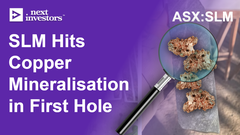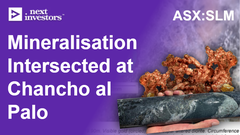SLM encounters significant copper mineralisation
Today our copper Investment Solis Minerals (ASX: SLM) said that it has encountered significant copper mineralisation at its Canyon project in Peru.
We take this as a good early sign that the project could host porphyry style mineralisation in a country that is the second largest producer of copper in the world.
Rock grab samples returned assays of 0.74% copper 0.07% molybdenum and 0.53% copper 0.02% molybdenum:
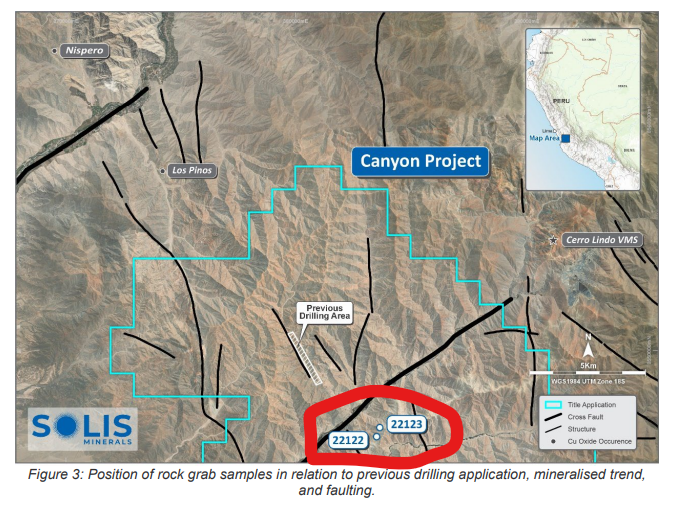
These come to the south of previous drilling done in the area.
SLM said “the mineralisation was found in joints and faults in road-cuts over a distance of approximately 400m in discontinuous patches.”
Follow up work here involves remote sensing, mapping, and rock geochemistry.
SLM has a large tenure in Peru - and the Canyon Project (circled in red) lies to the north of SLM’s projects in the south of Peru’s coastal belt:
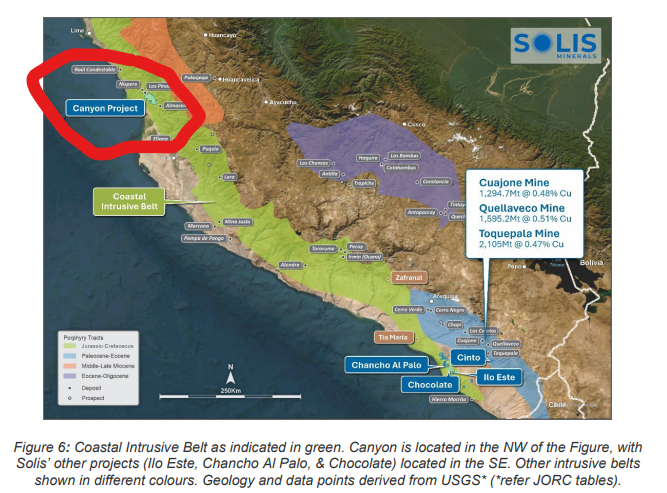
It’s important to note that this project is at the application stage.
Solis has made applications for 27 exploration concessions, totalling 25,600Ha, in a contiguous block known as the Canyon Project.
We’re keen to see SLM refine drill targets across this large footprint of tenements, and ultimately drill in 2025.
We outlined SLM’s potential to make a copper discovery in Peru in the below note across its projects:
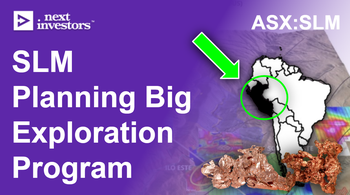
SLM: Four “shots on goal” at a new copper discovery in Peru
How does this news Impact our SLM Investment Memo?
Although this is very early stage exploration, today’s news slightly mitigates exploration risk at the Canyon project.
Exploration risk
SLM’s projects are all considered early stage prospects. This means SLM is yet to make a discovery on the projects. Inherently there is a risk that drilling programs return results with no mineralisation and the projects are not considered valuable.
Source: 9 July 2024 SLM Investment Memo
What’s next for SLM?
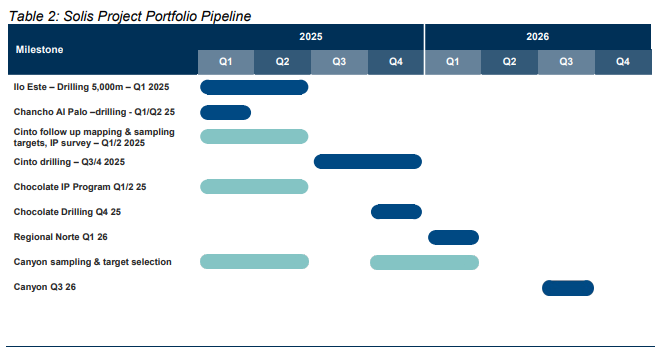
🔄Additional exploration work to firm up drill targets
SLM plans to conduct further induced polarization (IP) surveys at Cinto (the project located close to Southern Copper’s Toquepala mine) to refine drill targets, with a first-pass drill program anticipated for 2025.
It will then start drilling across the four projects during 2025, noting that the order of the projects drilled could change depending on which projects have the best targets following this exploration work.


